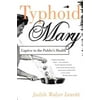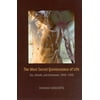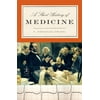Updated On September 11th, 2022
Looking for the best Medical History Books? You aren't short of choices in 2022. The difficult bit is deciding the best Medical History Books for you, but luckily that's where we can help. Based on testing out in the field with reviews, sells etc, we've created this ranked list of the finest Medical History Books.
| Rank | Product Name | Score | |
|---|---|---|---|
| 1 |

|
Typhoid Mary : Captive to the Public's Health (Paperback)
Check Price
|
0%
|
| 2 |

|
The Most Secret Quintessence of Life : Sex, Glands, and Hormones, 1850-1950 (Hardcover)
Check Price
|
0%
|
| 3 |

|
Modern Library Chronicles: A Short History of Medicine (Series #28) (Paperback)
Check Price
|
0%
|

Our Score
Discover the forgotten story of Mary Mallon--the real Typhoid Mary--in this humanizing portrait offering a window into the ethical dilemmas of public health policy that continue to haunt us in the COVID era. She was an Irish immigrant cook. Between 1900 and 1907, she infected 22 New Yorkers with typhoid fever through her puddings and cakes; one of them died. Tracked down through epidemiological detective work, she was finally apprehended as she hid behind a barricade of trashcans. To protect the public's health, authorities isolated her on Manhattan's North Brother Island, where she died some 30 years later. This book tells the remarkable story of Mary Mallon--the real Typhoid Mary. Combining social history with biography, historian Judith Leavitt re-creates early 20th-century New York City, a world of strict class divisions and prejudice against immigrants and women. Leavitt engages the reader with the excitement of the early days of microbiology and brings to life the conflicting perspectives of journalists, public health officials, the law, and Mary Mallon herself. Leavitt's readable account illuminates dilemmas that continue to haunt us in the age of COVID-19. To what degree are we willing to sacrifice individual liberty to protect the public's health? How far should we go? For anyone who is concerned about the threats and quandaries posed by new epidemics, Typhoid Mary is a vivid reminder of the human side of disease and disease control.
Discover the forgotten story of Mary Mallon—the real Typhoid Mary—in this humanizing portrait offering a window into the ethical dilemmas of public health policy that continue to haunt us in the COVID era. She was an Irish immigrant cook. Between 1900 and 1907, she infected 22 New Yorkers with typhoid fever through her puddings and cakes; one of them died. Tracked down through epidemiological detective work, she was finally apprehended as she hid behind a barricade of trashcans. To protect the public's health, authorities isolated her on Manhattan’s North Brother Island, where she died some 30 years later. This book tells the remarkable story of Mary Mallon—the real Typhoid Mary. Combining social history with biography, historian Judith Leavitt re-creates early 20th-century New York City, a world of strict class divisions and prejudice against immigrants and women. Leavitt engages the reader with the excitement of the early days of microbiology and brings to life the conflicting perspectives of journalists, public health officials, the law, and Mary Mallon herself. Leavitt’s readable account illuminates dilemmas that continue to haunt us in the age of COVID-19. To what degree are we willing to sacrifice individual liberty to protect the public's health? How far should we go? For anyone who is concerned about the threats and quandaries posed by new epidemics, Typhoid Mary is a vivid reminder of the human side of disease and disease control.

Our Score
Less than a century ago, physicians, scientists, and cultural commentators became fascinated by the endocrine glands and the effects of their secretions on our bodies and minds. Of all the characteristics supposed to be governed by them, the attributes of sex evoked the wildest interest. The gonads, it was revealed, secreted chemicals that not only influenced the biological expressions of sex, but seemed to generate the vitality and energy that made life worth living. Through a series of case studies drawn from Central Europe, the United States, and Britain, The Most Secret Quintessence of Life explores how the notion of sex hormones enabled scientists to remap the human body, encouraging hopes that glandular interventions could cure ills, malfunctions, and even social deviance in ways inconceivable to previous generations. Many of these dreams failed, but their history, Chandak Sengoopta shows, takes us into the very heart of scientific medicine, revealing how even its most arcane concerns are shaped by cultural preoccupations and anxieties.
Less than a century ago, physicians, scientists, and cultural commentators became fascinated by the endocrine glands and the effects of their secretions on our bodies and minds. Of all the characteristics supposed to be governed by them, the attributes of sex evoked the wildest interest. The gonads, it was revealed, secreted chemicals that not only influenced the biological expressions of sex, but seemed to generate the vitality and energy that made life worth living. Through a series of case studies drawn from Central Europe, the United States, and Britain, The Most Secret Quintessence of Life explores how the notion of sex hormones enabled scientists to remap the human body, encouraging hopes that glandular interventions could cure ills, malfunctions, and even social deviance in ways inconceivable to previous generations. Many of these dreams failed, but their history, Chandak Sengoopta shows, takes us into the very heart of scientific medicine, revealing how even its most arcane concerns are shaped by cultural preoccupations and anxieties.

Our Score
Insightful, informed, and at times controversial in its conclusions, A Short History of Medicine offers an exceptional introduction to the major and many minor facets of its subject. In this lively, learned, and wholly engrossing volume, F. González-Crussi presents a brief yet authoritative five-hundred-year history of the science, the philosophy, and the controversies of modern medicine. While this illuminating work mainly explores Western medicine over the past five centuries, González-Crussi also describes how modern medicine's roots extend to both Greco-Roman antiquity and Eastern medical traditions. Covered here in engaging detail are the birth of anatomy and the practice of dissections; the transformation of surgery from a gruesome art to a sophisticated medical specialty; a short history of infectious diseases; the evolution of the diagnostic process; advances in obstetrics and anesthesia; and modern psychiatric therapies and the challenges facing organized medicine today. Written by a renowned author and educator, this book gives us the very essence of our search to mitigate suffering, save lives, and unlock the mysteries of the human animal. "[González-Crussi fuses] science, literature, and personal history into highly civilized artifacts." -The Washington Post, on There Is a World Elsewhere
Insightful, informed, and at times controversial in its conclusions, A Short History of Medicine offers an exceptional introduction to the major and many minor facets of its subject. In this lively, learned, and wholly engrossing volume, F. González-Crussi presents a brief yet authoritative five-hundred-year history of the science, the philosophy, and the controversies of modern medicine. While this illuminating work mainly explores Western medicine over the past five centuries, González-Crussi also describes how modern medicine’s roots extend to both Greco-Roman antiquity and Eastern medical traditions. Covered here in engaging detail are the birth of anatomy and the practice of dissections; the transformation of surgery from a gruesome art to a sophisticated medical specialty; a short history of infectious diseases; the evolution of the diagnostic process; advances in obstetrics and anesthesia; and modern psychiatric therapies and the challenges facing organized medicine today. Written by a renowned author and educator, this book gives us the very essence of our search to mitigate suffering, save lives, and unlock the mysteries of the human animal. “[González-Crussi fuses] science, literature, and personal history into highly civilized artifacts.” –The Washington Post, on There Is a World Elsewhere